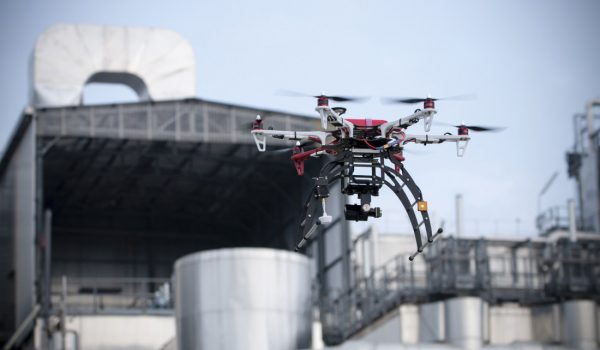It’s no surprise more entrepreneurs are hastening into the drone business. There’s real demand. Goldman Sachs estimates a total addressable market of more than $22.5 billion, excluding government spend. Because most businesses are reluctant (for now) to bring drone operations in-house, much of that $22.5 billion will be spent on drone operations for hire. Enter the drone services company.
So, let’s say you’re a company that operates drones, you’ve got some potential customers, and you’re getting close to signing some deals. Fantastic. But it’s important to understand that these transactions will be about one thing: data. You collect it, and your customers buy it. Why does this matter? You need to own what you’re going to sell, and in the U.S., ownership of data is largely governed by intellectual property laws. That’s why it’s in your best interest to get conversant or else risk selling something to your customers you don’t own, which now means your customers don’t own it either. That’s a problem that may force you out of business in no time, with disgruntled former customers demanding refunds.
Where are the pressure points for companies who sell data collected by drones? First, as a drone services company, you need to make sure your company – and not the individual drone operators – own the collected data. What does that mean? Under the “work-made-for-hire” doctrine, if you hire employees to fly the drones, all copyrightable data created by an employee is automatically the property of the employer, even if you don’t have a written agreement with your employee spelling this out. Great. Except that this doctrine only covers copyrightable IP, like photo and video. But what about data that’s not copyrightable, like crop health or heat patterns? This raw data is not copyrightable, though in some cases specific representations of the data (e.g., charts or tables) may be copyrightable.
How about the methods used to capture the data? Not copyrightable. These methods may be patentable, but “work-made-for-hire” doesn’t cover patentable IP. Bottom line: There may be valuable IP in the data and collection methods you use, yet this is not covered by the “work-made-for-hire” doctrine. What to do? One potential solution would be to have your employees sign an agreement assigning to your company all intellectual property rights to their work product. Even then, some work product is not intellectual property at all but is valuable nonetheless. How do you protect the latter? You include a non-disclosure provision in the agreement.
OK. Your employees are now covered by these IP assignments and non-disclosure agreements. What else? Maybe you don’t want to hire drone operators and instead use contractors. Or, maybe one of your employees is sick, and you need a freelancer in a pinch. Under U.S. intellectual property law, the “work-made-for-hire” doctrine does not apply to contractors unless stipulated in a written agreement. That means you’ll need a written agreement with contractors to protect even copyrightable IP. As for non-copyrightable data and valuable non-IP, you will need to protect this data in the same way you did with your employees, i.e., by including an assignment and non-disclosure provision in your contractor agreement.
Now, with those provisions included, you own what you’re going to sell. What next? Make sure you and your customer know exactly what’s being bought and sold. Imagine, for example, that a large commercial farm hires you and your team to scan the farm’s fields and analyze water distribution patterns. Both parties will likely agree on the buying and selling of the data collected from those particular fields. But does the drone operator have the right to aggregate all the data collected during the course of analyzing several thousand acres of land owned by ten different commercial farms, then repackage it, anonymize it, and sell it to a third-party? Did your agreement with the farms address these issues to begin with? If not, it should.
Finally, what about the methods you used to collect that data in the first place? Your customers don’t own that, right? But what if your customers make suggestions that you use to improve your collection methods? Do they have any ownership if you take them up on their suggestions? And what if your customers own the drones but have hired you to operate them and draft up a flight plan? Do you own the data collection methods in that situation, or do they? Once again, if your agreement didn’t address these issues, it should.
Remember, in the drone services business, you’re largely transacting with your customers for the buying and selling of data, and so it’s in your best interest to understand how intellectual property law determines the ownership of the data from its creation, to its sale, license, and use. Otherwise, you’re flying blind.
If you have questions or want further clarification on these and other issues related to the commercial use of drones, please contact Steve McDevitt, Doug Gastright, or any member of Frost Brown Todd’s technology industry team, fbtTECH.

